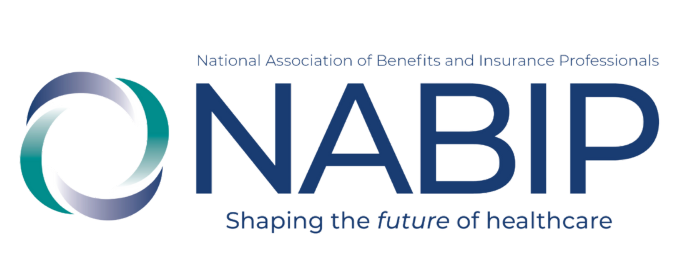The Importance of Health Insurance in Today's Economy
In today’s ever-shifting economic landscape, health insurance is more important than ever. Unexpected medical bills can quickly snowball into a financial nightmare, leaving you in a difficult position and struggling to make ends meet. As such, having the right health insurance policies in place can help protect yourself from unexpected costs and ensure that your finances don’t suffer as a result of an illness or injury.
In this article, we’ll be looking at some of the key aspects of health insurance, along with how it affects you on an individual level and what steps you should take when considering different plans.
From addressing common myths about coverage options to discussing how major changes in government policies might impact the marketplace for health care expenses, get ready to learn everything you need to know about choosing and using health insurance wisely!
What is Health Insurance and What Does It Cover
Health insurance is a type of coverage that pays for an insured individual's medical and surgical expenses. Insurers use the term 'provider' to describe a clinic, hospital, doctor, laboratory, healthcare practitioner, or pharmacy that treats an individual. The 'insured' is the owner of the health insurance policy; the person with the health insurance coverage.
Depending on the type of health insurance coverage, either the insured pays costs out-of-pocket and receives reimbursement, or the insurer makes payments directly to the provider.
Health insurance covers a variety of costs related to healthcare. It typically includes services like regular check-ups, emergency care, prescription drugs, and preventive health services. Some plans also cover mental health care, rehabilitation services, and chronic disease management.
The specifics of what is covered will vary based on the insurer and the specific policy, so it's always important to read the fine print and understand exactly what coverage you are receiving.
Why Health Insurance is Important
Health insurance is crucial for many reasons, and its importance extends beyond merely covering medical costs. Here are several reasons why health insurance plays a vital role:
1. Prevention of High Medical Costs: The primary function of health insurance is to provide financial protection against high, unexpected health expenses. Medical emergencies can happen at any time, and the costs associated with them can be overwhelming. Insurance allows you to be prepared for these situations.
2. Access to a Network of Medical Professionals: Health insurance plans typically have a network of healthcare providers. These are healthcare professionals and institutions with whom the insurance company has negotiated lower rates. It can significantly reduce your out-of-pocket costs.
3. Early Detection and Preventive Care: Regular check-ups, screenings, and preventive care are often covered by health insurance plans. These services are crucial in detecting potential health issues early on, where they can be treated more effectively and at a lower cost.
4. Legally Required in Some Cases: In some countries or states, it's required by law to have health insurance. Failing to have it can lead to fines or other penalties.
5. Peace of Mind: Lastly, having health insurance provides peace of mind. Knowing that you're financially protected in the event of a medical emergency can relieve a great deal of stress and anxiety.
Types of Health Insurance Coverage
There are several types of health insurance coverage available, each with its own unique set of benefits, drawbacks, and cost structures. Understanding these options is crucial when selecting a plan that best fits your needs.
1. Private Health Insurance: This is often provided through employers, but you can also purchase it individually. Typically, private health insurance plans are subdivided into two categories: Fee-for-Service (FFS) and Managed Care. Both categories cover a variety of medical, surgical, and hospital expenses. Most cover prescription drugs and some also offer dental coverage.
2. Public Health Coverage: Governments offer this type of health insurance. In the United States, there are two primary forms: Medicaid (for low-income individuals and families) and Medicare (for individuals over 65 or with certain disabilities).
3. Direct Primary Care: In this model, doctors charge their patients a monthly, quarterly, or annual fee directly in exchange for a range of medical services. It bypasses insurance, and the fee covers most of what the average patient needs, such as consultations, lab tests, and medication.
4. Health Maintenance Organizations (HMOs): These insurance plans contract with a network of medical providers to deliver care for members at lower costs. It is a more restrictive type of plan as it limits coverage to care from doctors who work for or contract with the HMO.
5. Preferred Provider Organizations (PPOs): In these plans, you pay less if you use providers in the plan’s network. You can use doctors, hospitals, and providers outside of the network for an additional cost.
6. High Deductible Health Plans (HDHPs): These are insurance policies with higher deductibles but lower premiums. HDHPs can be combined with a health savings account that allows individuals to pay for certain medical expenses with pre-tax money.
Remember, the best plan for you depends on your personal healthcare needs and budget. Always review the specifics of any health insurance plan before deciding if it's right for you.
Advantages and Disadvantages of Different Coverage Plans
Private Health Insurance
Advantages: Private health insurance often provides quicker access to medical care and a wider range of coverage options and providers. It also allows more freedom in managing your healthcare preferences.
Disadvantages: The costs can be significantly higher compared to public health coverage. Also, pre-existing conditions might not be covered in some cases.
Public Health Coverage
Advantages: Public health coverage is generally more affordable and accessible for low-income individuals, families, and elderly or disabled individuals. It also provides essential health benefits regardless of the patient's medical history.
Disadvantages: There may be long wait times for non-emergency medical procedures, and the choice of doctors and specialists might be limited.
Direct Primary Care
Advantages: Direct Primary Care emphasizes preventive care and offers a more personalized approach to health care. It also promotes a strong
doctor-patient relationship by allowing more time for consultations.
Disadvantages: This model may not cover specialized or emergency care, which means you may need to purchase a high-deductible health insurance plan for such cases.
Health Maintenance Organizations (HMOs)
Advantages: HMOs generally have lower out-of-pocket costs and include all preventive care at no extra cost.
Disadvantages: Your choice of healthcare providers is limited. And if you choose to see a doctor out of the network, expenses will not be covered.
Preferred Provider Organizations (PPOs)
Advantages: PPOs offer more flexibility in choosing your healthcare providers. You can see any doctor without a referral, both in and out of your network.
Disadvantages: If you choose to see a doctor out of the network, the cost can be much higher. Also, PPOs generally have higher premium costs and deductibles than HMOs.
High Deductible Health Plans (HDHPs)
Advantages: HDHPs have lower premiums and can be combined with health savings accounts to pay for certain medical expenses with pre-tax money.
Disadvantages: Individuals with HDHPs must pay more out-of-pocket before their insurance begins covering their medical costs. It can lead to substantial costs before the benefits of the lower premiums are realized.
In Conclusion
It is essential to understand the role that health insurance plays in your overall healthcare situation and the types of plans that are available. It can help protect you and your family in terms of medical expenses and any long-term care issues that may arise in the future. While coverage levels vary from plan to plan, there are good options for everyone.
Make sure to check your qualification status regularly due to changing laws or regulations to take full advantage of the coverage offered by your health insurance provider. To make the best choice for you and your group’s healthcare needs, evaluate all available options and contact an insurance agent today with any questions you may have before making a decision.
About Us
Feeling overwhelmed with the choices you have when it comes to healthcare plans and struggling to pick the best one for you. Don’t worry, you are not alone! A lot of people all over the nation face the same issue.
That’s why Insurance Professionals USA is here to help you choose the best healthcare plan for you and your family. Our mission is to provide reliable and beneficial healthcare plans to our clients so they can have financial security and peace of mind during a health crisis.
We help you choose plans with comprehensive coverage within your budget!
Request a Quote Today! You can reach us at Call
(888) 710-6833 to know more!













